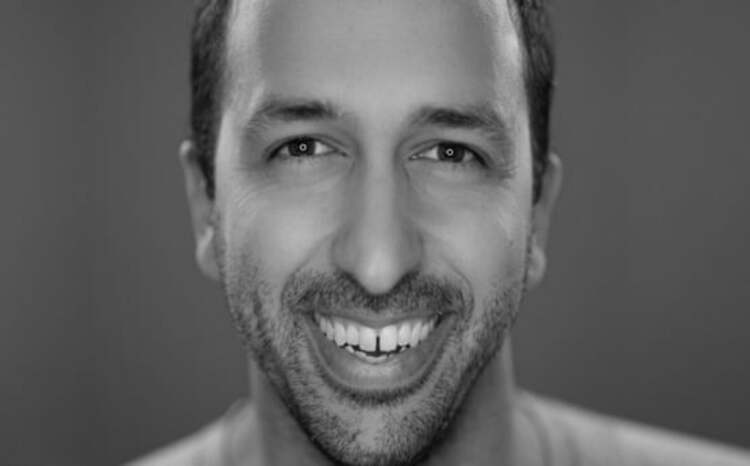CCIO profile: Afzal Chaudhry
- 1 October 2014

This month, after years of preparation, Cambridge University Hospitals NHS Foundation Trust should become the first in the NHS to implement Epic’s electronic patient record solution.
Many eyes are trained on Addenbrooke’s Hospital; wondering if the US company can make a successful break into the UK market, and whether the trust can get the benefits it needs out of its massive investment.
But if any of that is leading to any extra stress for the trust’s clinical lead for IT, he’s not letting on. “To be honest, I am not sure that we feel any additional pressures,” says Dr Afzal Chaudhry.
“I think that’s mainly because the pressure is all coming from within, in as much as we don’t want to put undue stresses on our staff, and we certainly don’t want to put undue inconvenience on our patients.
“When you look at those pressures – the ability to make sure you can still safely care for your patients at go-live – most of the other things fade away a little bit.”
The coding clinician
Dr Chaudhry, a consultant nephrologist, has been around for every step of what the trust has dubbed its eHospital programme.
He was appointed chief clinical information officer in 2011; a fairly natural progression for someone whose youthful interest in computers would subsequently make him a member of a rare breed: the clinician who codes.
“I taught myself to program in my teenage years,” explains Dr Chaudhry. This was a skill that would come in handy when he was appointed as a consultant.
“When I came to Addenbrooke’s in 2003, they had they had an embryonic transplant software system which I then had the opportunity to grow and lead,” he says.
“We went from a single, small database on a shared server to what we now have; which is three of our own servers and a much more extensive database serving the solid organ programme for the Eastern region.
“I also had the opportunity to do some work with the UK Renal Registry. There is a web-based interactive data portal and I was the sole author of all the code for that. Again, that coding was really built on the back of that self-taught experience that I had during my teenage years and beyond.”
Living through a technology revolution
Despite his early interest, Dr Chaudhry admits that he never anticipated “the explosion of in IT technology that would occur subsequently.”
The explosion in the use of computers, devices and mobiles outside the NHS means he rarely encounters staff these days who have no familiarity with technology. But he sees eliminating the divide between the ease of using IT at home and the frequent difficulty of using it at work as one of his key focuses as a CCIO.
“If I go back maybe three years ago, then on the one hand people were very comfortable using tech in their home lives. They couldn’t see themselves going back to not using it.
“But when they came to the hospital there was some sort of change. They felt much more anxious – were there going to be doing it right, what if they made a mistake, how much training were they going to get?
“I think there was a view in people’s minds that because this was a work thing it was somehow completely different to what they were doing at home and elsewhere.
“And once we explained to people: ‘Absolutely you need to be trained to use the system safely and to its full potential, but let’s build on the experiences you have from your home life’ we found people said: ‘Oh, this is very similar to what I do at home, very similar to what I do when I book a plane ticket’.
“As soon as you can bring a little bit more real-world relation to what they’re doing, their easiness with the system and the willingness to become involved grows exponentially. The really nice thing now is that we are not actually having to expend a lot of effort on getting all of our people into training. The uptake is great.”
Not just training, Epic training
Training is famously central to ‘the Epic way’ of doing things. The US company requires organisations implementing its EPR to have a designated team of ‘analysts’ for the implementation. These people – 100 in the case of Cambridge – have to go through a rigorous course, which includes an exam.
It might sound like a tough sell to already harried healthcare professionals, and Dr Chaudhry admits some of those who signed up were a little anxious. But he emphasises that the formal approach has helped to make sure that learning has been seen as a very real part of continuing professional development.
“All of these posts are formal secondments from people’s jobs,” he explains. “We asked people to apply, and asked them to discuss it with their managers, who then put people forward. We had a steady stream of applicants – more than we had spaces for – and people did very much see it as a way of developing new skills.
“Having done the training and exams myself, and having seen how the teams have grown over the last 18 months, I think it’s a fantastic idea. These people were really properly trained at the beginning, and then really honed their skills over time.
“People were absolutely committed to it: I need to do this training; I need to pass my test; I need to acquire these skills. And their skillsets are now hugely in advance of where they were even at the end of their training. Almost universally, I think they would say they’ve seen it as a really positive learning experience.”
There is general staff training too, which again concludes with a test – although Dr Chaudhry is keen to say that this one is better viewed as a proficiency assessment.
“The aim is to ensure that people are proficient in the basic elements that they need to do their tasks. And if they don’t pass it first time, then we sit down with them and go through the issues that they’ve had. It’s about bringing everybody along and making sure they’re OK rather than saying: ‘No, you flunked it, that’s the end’.”
The Epic way and the Cambridge way
Dr Chaudhry also anxious to emphasise that the trust’s commitment to ‘the Epic way’ has not been a blind one. A big part of his role has been to make sure that the implementation – and the communication around it – is true to Cambridge and the way it does things.
“In everything that we’ve done, we’ve always asked Epic for their experience because they have a lot more of it than us. But we’ve also always, always worked with them to reinterpret that experience in the light of a Cambridge context.
“Epic are great in as much as they can provide you with all sorts of posters and leaflets and so forth, but in every instance what we’ve done is taken the relevant bits from those and then added our own content as well.
“What was very obvious from the start is that not only is there the obvious UK/US divide, but that every hospital in the UK does things that are slightly differently.
“All the way through, I've had a role – and our senior nurses have had a role – in saying: ‘Let's look at what Epic are providing for us; is it right for us; what else do we need to add in for us’: and then we put it out.
“I think that has meant that when material has gone out, it has been Cambridge material. It has been informed by Epic, but it is our stuff.”
It is an approach that has extended even to the training sessions. “We have quite significantly reduced the physical number of hours that our staff need to be trained from Epic's original suggestion,” reveals Dr Chaudhry.
“But at the same time we went through each and every training class to make sure that we weren't missing anything out that we thought was appropriate.
“There were some things that we've actually added in that Epic wouldn't normally teach, and there were some things that we took out because we could say, ‘well, we deal with these aspects of training in a slightly different way’, or ‘we already have our own training teams who would teach that’.
“It’s been very tailored to what we feel our staff need to know. The pharmacists have principally designed the pharmacists' training. I've had a role in the doctors' training. Our senior nurses in the nurses' training.
“And I think that again has been very important, because the feedback that we're getting back from our training is: ‘We were very concerned this was going to be very American, and actually it's not at all, it's very Cambridge’.”
Three weeks, and counting
It is fair to say that the East Anglian city has a unique approach to healthcare in a few regards: not least the unusually strong connections between different providers and with the university.
The Cambridge Epic implementation is also notable in that the local, specialist, cardiothoracic trust, Papworth Hospital, expects to go live with the system in due course, having worked closely with colleagues at Addenbrooke's throughout.
For now, Dr Chaudhry says the project focus at Addenbrooke’s has been very inward-looking, but he expects that to change soon. “We’re very conscious that we need to spread the umbrella, and we do have these relatively straightforward routes to engage with other stakeholders,” he says.
First things first though: the eyes of Cambridge’s CCIO are currently on the initial Epic prize. Along with those of many others; even if he isn’t thinking about that.
Speakers from Cambridge University Hospitals NHS Foundation Trust will be speaking about their Epic go-live at the annual CCIO Leaders Network conference at EHI Live 2014. The trust should be a week on from its date with destiny by the event on 5 November, and should have plenty of fascinating details to share.
EHI Live 2014 takes place at the NEC in Birmingham on 4-5 November. Full details of the keynote speakers, co-located conferences, feature areas and exhibitors are available on its website. Registration is free for and open now.





